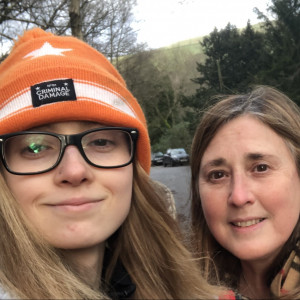Food should be fun, not a number.
Personally, much of my ED was initiated from calorie counting, for the wrong reasons. And whilst I can now use calories for good, I believe calories on menus can be a very triggering and dangerous thing.
Calories do not mean health. A bag of sweets can have less calories than some fruit or some nuts, however the fruit and nuts provide more nutritional health benefits. Not only that, but calorie counts are often estimates and not always reliable, that’s why packaging has weight with an E next to it.
With this new legislation, the government has only focussed on one part of the demographic. Yes, we do have an obesity crisis in the UK but we also have an eating disorder crisis.
The government has chosen to address obesity in an economic and numerical way which might even be a catalyst for eating disorder figure to rise. People who have never struggled with eating disorders, and even our children, will be brought up in a world in which food is viewed as something that has numerical value and can be controlled, rather than enjoyed.
The new strategy discounts and ignores the mental health benefits of food, and I find that really sad and worrying that our children will be exposed to this. Food is more than energy. It is social. It is tasty. Life is too short to worry about an inaccurate number.
I think children should be educated about eating disorders and nutrition. Whilst information around calories can be useful, they should be better informed around balance and moderation, fun foods and flexibility at an early age. Parents and carers can educate their children, and dispel common myths around food and the inaccuracy around the numbers. We are role models and should avoid talking about calories and food in a negative way in front of children, reminding them that calories do not define health.
My advice to people in recovery is acceptance. Learning that we will all be exposed to calorie as a part of recovery is important, as well as to accept they are there and cannot be avoided in a lot of life’s situations.
I am fine seeing the calories. I have learned through groups in inpatient services how to use them to make sure I am properly fuelled for my lifestyle, and now I understand that flexibility and moderation is key to a healthy lifestyle. And those who feel able, can use calories as a part of their recovery too, making sure they are getting enough energy to fuel their own goals and lifestyle – after all, recovery can take a lot of energy!
Some foods may be more calorific or less ‘healthy’ which is subjective anyway, but it is important to recognise what foods can be good for your mental health. This makes me worry for the children being raised around calories on menus, people still struggling with eating disorders or in recovery; but still struggle with calories, even those who have never struggled with calorie counting.
To those who have a past history with more religious calorie counting, or are looking to move away from that behaviour, there are some things that could be useful when eating out.
An option might be to get a friend, family or carer to read menu to you, giving you the opportunity to trust your body and mind to choose what you really want without taking in the menu and any calorie content.
Some restaurants (it’s worth googling) provide an option to have a menu without the nutritional information on, and I believe there is a petition going around to make this a mandatory option at all restaurants. Or you can choose to support smaller businesses who do not need to provide calorific content under to the new legislation.
Food should be fun, not a number. Life is too short to waste time counting a number and letting companies with inaccurate nutritional information, determine what you should eat. This is just from my experience, knowledge from groups in inpatients and my opinions on this. It may not be helpful to everyone but might help some people.

Contributed by Charlotte,
Service user and Supporter of First Steps ED

